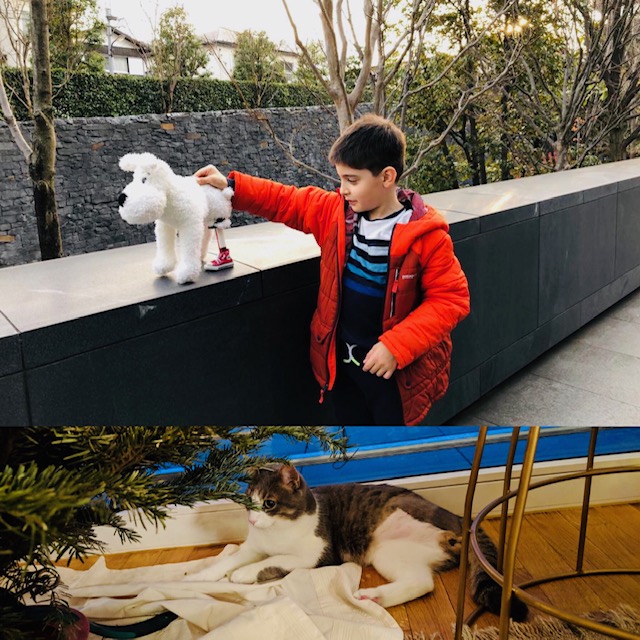Wishing You A Year of Compassion!
Work is mostly believed to serve as a source of many for all of us: economic gain, social status, a sense of belonging and meaning…
There is considerable research regarding the impact of work on our humanity; however, we tend to pay more attention to the utility drivers. That’s mainly because our current leadership and practices have been developed by economists and modern economists tend to identify rational ends with maximization of utility, which results in welfare. Welfare, however, is not the same as wellbeing. When we over-focus on the rational, our cultures become habitats of arationality. For example, we cover our political motives by politeness while often unintentionally, still end up hurting others. Or we highlight our willingness to cooperate while doing back information from others resulting in
We want to shift this focus inside our business communities in and beyond 2019. We equally care to drive wellbeing in addition to welfare for
Be it at work or outside in our societies, there is a clear need to induce compassion in our daily experiences. As a result, during the initial few weeks of 2019, we will share some details around fostering more meaning at work and the typology of practices that infuse a sense of belonging, trust, and respect inside our workplaces.
Start With Compassion
Over the last year, we made it a practice to ask about compassion during our business discussions. It is surprising how many of us do not have a good definition of this virtue. It is often confused with sympathy or empathy but it is different… I often share the following example to differentiate:
If you were to stumble and fall into an open well walking down the street, someone sympathic would walk by and say “Oh, you fell, poor thing. That must have hurt!” and walk away… Someone empathic would walk by and say “OMG! I have been there, that’s hurtful but wait now, help is coming” or “Anything I can do?!” and walk away… Some compassionate would walk by and say “Oh Lord, I am so sorry for your tripping over. Wait, I am getting a rope to get you out” and ACT.
Compassion develops from growing empathic care and completes its round by us taking an action to alleviate the pain (or suffering).
Of course, it is always better to have sympathy and empathy than none; yet, there is a continuum. If we want to create different – better – experiences for ourselves and others, we have to get ourselves to care first and then yes, act.
Over the holidays, we adopted a cat. Our first time ever, house pet. His name is ‘Hamsi’, Turkish for anchovy. Hamsi came from the shelter, has been badly hurt (by humans, may I say…) and had a leg amputated. He was looking for a loving home. This is the picture I received from one of my best friends’ son, who is 7 and whom I consider being a nephew, the day after we informed them on
“Auntie, I may have a solution for Hamsi: I designed him a leg, I think it may help his pain.”

This is what compassion looks like… From a place of distance, in our case from Japan, where our friends reside currently, thinking and developing a solution that one believes may help the other… Of course, the action can not be completed here but you get the point…
If you are going to invest in one thing this year – for yourself as a leader and/or for your organization, let that be compassion.
Self-Compassion Comes First
It is true. Our colleagues Jane Dutton and Monica Worline at the University of Michigan have studied a variety of organizations to understand compassion at work for six years. They found distressed employees who receive a direct compassionate act and/or observe others receive it experience greater positive emotions such as joy and developed higher commitment towards their organizations.
There are many simple behaviors you can engage in to demonstrate compassion, it need not to be grandiose; and you have to start with self.
- Start with self-compassion. There are three legs to compassion: The ability to give, the ability to receive and self-compassion. As Dalai Lama often says “In order to truly have compassion for others, we must have compassion for ourselves.”
- Pay attention to employees’ psychological well-being. In a study by Amy Edmondson, it is noted that organizations with higher levels of “psychological safety” are more willing to admit to error and collaborate to find solutions, providing safer environments for others’ to exist. Compassion plays a role in psychological safety because it can enhance trust and fuel generosity, which in turn can have a cascade effect in organizations.
- Display positive contact. This has become a touch topic in the era of #metoo movement; however, trust that people know to differentiate between a good social contact and other. Initiate open meetings, include everyone for the development of a community.
- Exercise authenticity and transparency. If we can remain true to who we are and exercise the courage to keep the communication lines open with respect and kindness, we are able to build space and grow internal resources to form an empathic connection.
- Be generous. In a smile, in time, in taking perspective. This is also known as “cognitive empathy,” or simply knowing how the other person feels and what they might be thinking. This type of empathy can help in negotiating or motivating people to give their best effort.
No outcome is truly realized without a sense of purpose. There is no doubt that one of our primary motivations as human beings is self-interest and it is a fact that our organizations (corporations, societies, etc.) are fundamentally selfish by design in that they pursue self-interest in a rational way. At the same time, we have a moral obligation to honor our other human motivations and organizational ethics. It is impossible to avoid stress in the current modern lives of ours. It is, however, possible to bounce back from the ups and downs of life with strength and resilience through a touch of compassion.
“Culture” by definition is developed through ethics nurtured through repetition, that becomes a tradition. Go into the year wishing self and others more compassion. Adapt your rationality to embrace compassion. Form nurturing habits that can transmit from one generation to another.
Only then, we can truly start realizing a different set of experiences.
Trust as a Foundation of 21st Century Organizations

One of the most frequent questions I get regarding ourRead more…




Comments are closed.